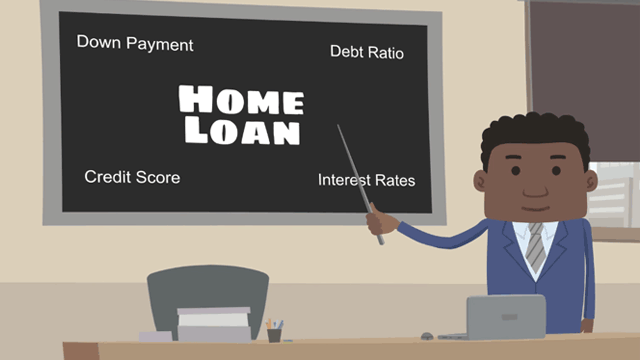FHA Home Loan Interest Rate Factors
March 24, 2025
Who determines the interest rates for FHA loans?
The Federal Housing Administration (FHA) insures FHA loans, but does not set or regulate FHA loan interest rates.
Instead, banks, credit unions, and mortgage companies determine the interest rates offered to borrowers. FHA loan guidelines and lender standards both play a role in loan approval.
What influences FHA loan interest rates?
FICO scores can influence the mortgage rate the lender offers. Higher scores typically result in lower rates, but other factors must also be considered.
A higher loan-to-value ratio can lead to higher rates. You can adjust that value with a higher downpayment. Your debt-to-income (DTI) ratio also matters. A lower DTI ratio generally helps the lender offer you a lower rate.
Shorter FHA loan terms often have lower interest rates. You could save more on a 15-year mortgage than on a 30-year note.
What non-financial factors can influence FHA loan interest rates?
Beyond financial considerations, non-financial factors also contribute to interest rate determination. Inflation and Federal Reserve policies impact rates, and each lender's internal policies and risk tolerance influence rates, too.
Property location, including local market conditions and property values, can affect rates. Whether it’s a purchase or refinance, the rate offered can also influence it. Even within the FHA program, certain loan types can influence rates.
How do fixed-rate and adjustable-rate mortgages differ?
Fixed-rate mortgages keep the same interest rate throughout the loan's term, allowing for stable monthly payments.FHA adjustable-rate mortgages (ARMs) have interest that fluctuates based on a predetermined index.
How can I get the best possible FHA loan rate?
Improve your credit score. Take steps to your DTI ratio, this is also very important. A larger down payment can help. Shop around. Compare loan rates from multiple lenders. Understand the implications of points and fees.
What are Mortgage Insurance Premiums?
Mortgage Insurance Premiums protect the lender against default. This includes a one-time fee paid at closing and the annual FHA Mortgage Insurance Premium, which is added to your mortgage payments for the year, split over 12 installments.
Can I refinance my FHA loan, and what are the options?
Options include the FHA streamline refinance, a rate and term refinance to change interest rates and loan terms, and FHA cash-out refinances to access home equity.
How does my credit score specifically influence the interest rate I'm offered?
Higher scores indicate lower risk, leading to better rates. Even with lenient FHA standards, a higher score can improve your offered rate.
Besides interest rate, what other costs should I consider when evaluating an FHA loan?
Beyond the interest rate, you should consider mortgage insurance premiums (MIP), closing costs, including origination fees and appraisal fees, property taxes and homeowners insurance, and any potential HOA fees.

FHA Loan Articles
April 11, 2021With the trend of falling interest rates since 2019, the number of mortgage refinances around the country has spiked and continues to rise. Borrowers with FHA loans can also capitalize on the low rates, but it may be possible to simplify the process with the FHA Streamline Refinance.
April 3, 2021Borrowers can choose to refinance for several reasons, but it comes down to prioritizing different benefits. One homeowner may want the lowest possible monthly payment, while another might want the shortest possible term for their loan.
March 29, 2021The FHA helps first-time and low-income homebuyers by having lower down payment requirements for its borrowers. Despite this lower credit eligibility criteria set by FHA, it is important to remember that FHA-approved lenders can set their own requirements
March 24, 2021One of the major arguments people have for renting instead of buying is the large upfront cost of a down payment. Depending on the type of loan program you apply and are approved for, this could mean anything between 3.5% and 20% percent of your purchase price.
March 21, 2021The two basic types of home loans are fixed rate and adjustable-rate mortgages. The mortgage market offers many other options to homebuyers, but these two are the most common, and the first pair from which to pick.







